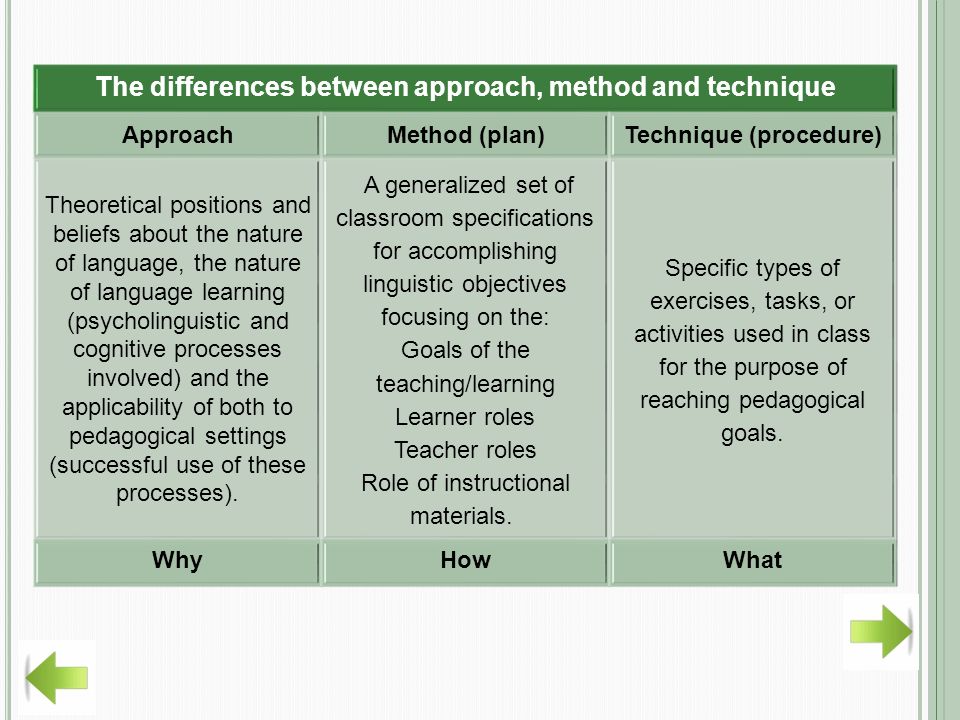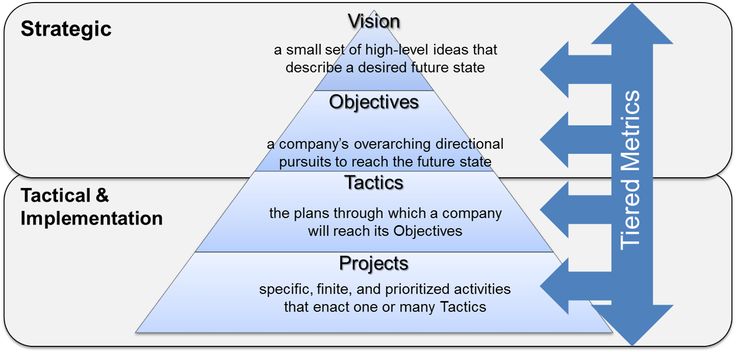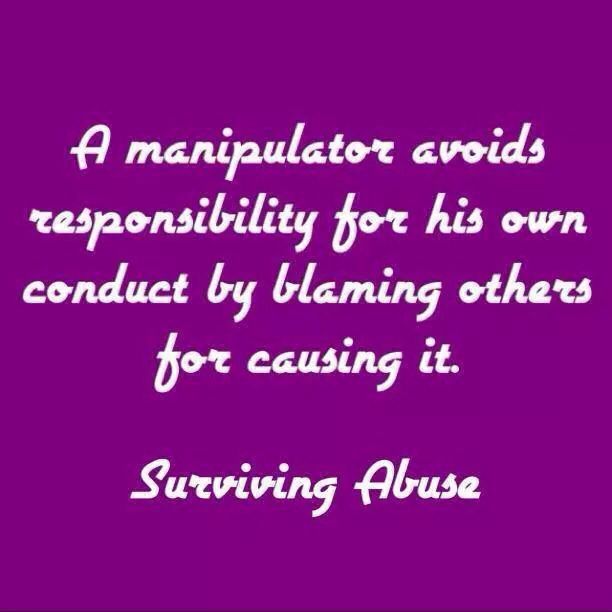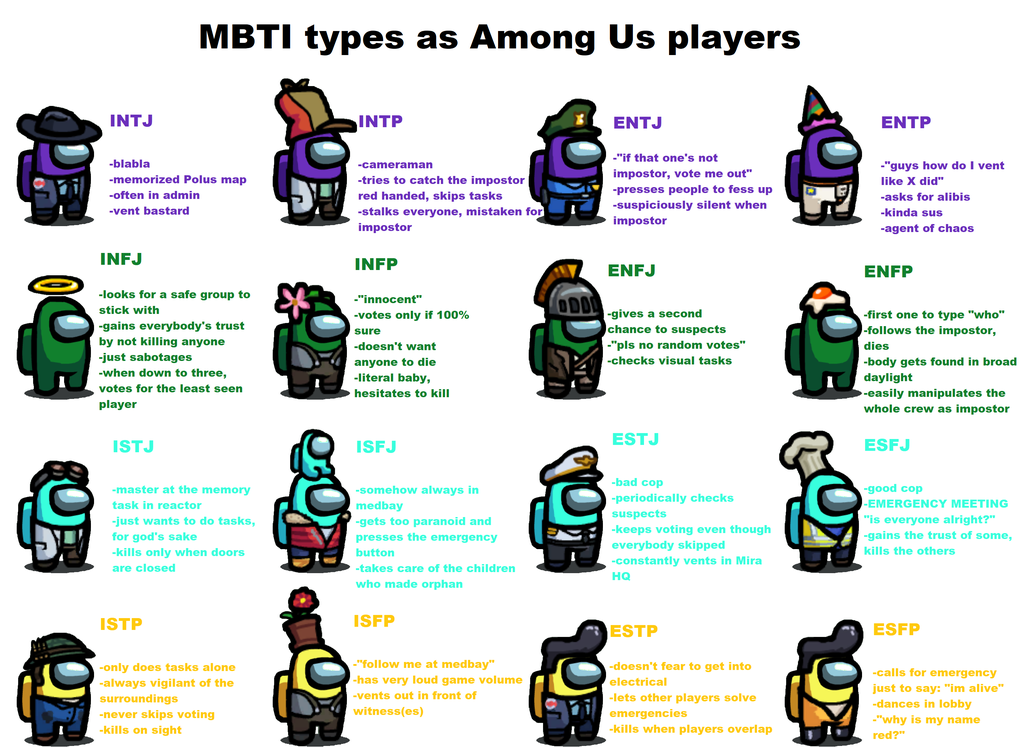Tactics of manipulation
7 Manipulation Tactics to Know
Manipulative tendencies can surface in any relationship. Knowing what to look for can help you avoid them.
Manipulation can happen to anyone in all kinds of relationships, from friends and romantic partnerships to parents and family relationships. Even work colleagues and your boss might have manipulative tendencies.
Yet, a manipulative person can be hard to recognize.
Manipulation in relationships can sometimes be so subtle and effective, you may wind up questioning your perception of the situation, rather than the other person’s actions or motives. Gaslighting can make discerning manipulative tactics especially difficult.
But by learning what to look for, you may be able to protect yourself from manipulation tactics and psychological games before they start.
Manipulative people often use common manipulation tactics and behaviors to get what they want. Here’s what to look for.
Guilt-tripping
Guilt-tripping is when someone tries to make you feel responsible or guilty of your actions or decisions.
Drake explains that guilt trips often involve using something one person did for the other as “leverage” to get what they want.
Some examples of guilt-tripping might be:
- “If it wasn’t for me, you wouldn’t have gotten through college. You owe me.”
- “I’m the one who is working all the time, while you are spending time with friends. I deserve this expense.”
- “If you can’t come over, then I might as well not invite anyone else that night. There’s no point then.”
Lying
People with manipulative tendencies often lie to try to control or coerce others, as well as avoid blame or consequences for their actions.
For example, a teenager who’s been told they are not allowed to hang out with a particular group might lie about their whereabouts. Or, they may lie to the other parent about being given permission to go out with their friends.
“If one parent doesn’t check in with the other parent, the teen may be given permission to go with those friends,” Drake explains.
Pathological lying may be a sign of a mental health condition.
Flattery
It can be hard to tell the difference between a compliment and flattery.
A compliment is given to sincerely point out something positive with no expectation of gain. But flattery is often used disingenuously as a tool to gain emotional leverage. With flattery, there’s often an expectation of getting something in return.
For instance, someone who wants a raise or promotion might regularly praise their manager’s strengths and accomplishments.
Projection
Projection happens when one person claims an emotion they’re feeling — such as jealousy — is actually being experienced by someone else.
For example, a person with manipulative tendencies might cause tension and drama, but blame someone else for creating that energy.
Maggie Holland, a licensed counselor in the state of Washington, explains that projecting aids a person who manipulates in dodging responsibility for their actions and helps them avoid changing their behaviors. “But it can also erode your trust in your own reality,” she adds.
“But it can also erode your trust in your own reality,” she adds.
If you think you might be projecting, Holland suggests pausing and asking yourself: “Is this my stuff or their stuff?” This can be helpful for disrupting projection.
“It’s also really important that we don’t project our own values onto a manipulator, because that just sets us up for a lot of disappointment and frustration,” Holland adds.
‘Moving the goalposts’
Sometimes, no matter how much you show up for someone who manipulates, they will change their expectations at the last minute to keep you constantly running toward their “goalposts.”
Someone who moves the goalposts can set you up for frustration and exhaustion.
Holland explains that with manipulative people, “you’re never going to actually reach those goalposts, and your efforts and success won’t be acknowledged if you do.”
Believing in yourself, recognizing your own needs, and disengaging can be helpful for avoiding feelings of demoralization.
Holland suggests working to understand your personal values, goals, and standards to feel like you met your own expectations.
“Remind yourself that you’re just a human being, doing the best you can, and that is enough.”
Triangulation
Triangulation can take many forms, but often happens when a third person is brought into your communication, instead of keeping the issue between the two people it impacts.
For example, a manipulative person might involve your mother in a disagreement to take their side against you. “Now, all of a sudden, you’re disagreeing with two people and the odds are not in your favor,” Holland explains.
According to Holland, triangulation often keeps manipulative people from having to take responsibility and may protect them from feeling like they’ve lost an argument.
Becoming aware of triangulation can be helpful for spotting it. Try to disengage with “triangles” whenever they come up unfairly.
“This means you’re going to have to set and stick to some firm boundaries, but remember that boundaries are not meant to control people, but to ensure that you’re still able to remain in a relationship with them in a healthy way,” says Holland. “Boundaries are not heartless, they’re actually really healthy.”
“Boundaries are not heartless, they’re actually really healthy.”
Love bombing
Love bombing is manipulation through excessive attention, often showering you inappropriately with gifts, compliments, affection, and time.
These things may be wonderful, which can be confusing. However, love bombing is when this feels enrapturing, takes all your attention, and is excessive.
“It might feel great at first, but it usually leaves you isolated and makes you lose sight of who you are,” Holland explains. “Once you’re ‘swept away,’ this attention might stop, and will leave you feeling like you’re seeking it out or chasing it down again.”
If you’ve already experienced love bombing and are on the other side, give yourself patience and work to forgive yourself. “You’re not blind. A manipulative person took advantage of your normal human nature to want to feel desired and cherished,” Holland adds.
Some ways to avoid love bombing include:
- regularly spending time with friends and loved ones
- engaging in your own interests outside of this person
- checking in with yourself often to ensure that you’re aligned with your values and standards
Manipulation is coercive or unethical behavior driven by the goal of exploiting or controlling another person for your own personal gain.
Taylor Draughn, a licensed professional counselor, and marriage and family therapist, explains that manipulation “can be a very effective way to get what you want, but it can also be very dangerous.”
She adds, “If someone can manipulate you, they can control your actions and your thoughts. It is important to be aware of the signs of manipulation so that you can protect yourself from this type of abuse.”
While manipulative tendencies are often subtle and sometimes undetectable, there are four stages of manipulation.
- Flattery. The first stage is when the person who manipulates puts on a facade of being kind, caring, and helpful. “They may act like they want to help you with anything you need, but in reality, they’re just trying to get what they want from you,” Draughn explains.
- Isolation. This is when the person who manipulates may start to isolate you from your friends and family. They might try to convince you that your loved ones don’t understand you or want to control you.
 The goal is usually to separate you from people who might spot the manipulation, Draughn explains.
The goal is usually to separate you from people who might spot the manipulation, Draughn explains. - Devaluing and gaslighting. During the third stage, someone who manipulates may try to make you feel guilty or confused. “They might start telling you that you’re ungrateful, or that you’re making them unhappy,” says Draughn. The purpose of this stage is to make you doubt yourself, your instincts, and your decisions. “It can be very difficult to break free from the manipulator’s control at this stage,” Draughn adds.
- Fear or violence. The fourth and final stage is when the person who manipulates may begin to threaten you. According to Draughn, they may threaten to leave you, hurt you, or hurt themselves as a way of keeping you under their control with fear. “It can be very difficult to break free from someone who is using threats as a form of manipulation.”
People manipulate others for many reasons, including:
- Control.
 People who manipulate might be driven by a need for control or controlling tendencies, which may feel thrilling.
People who manipulate might be driven by a need for control or controlling tendencies, which may feel thrilling. - Low self-esteem. Manipulation can be a way for a person to avoid feeling bad about themselves. Jason Drake, lead clinician and owner of Katy Teen & Family Counseling, says that “People manipulate largely due to lack of self-confidence or self-esteem.” “They may not feel that they have the ability to get what they want on their own merits,” he says.
- Ego. A common reason among narcissistic people, someone who manipulates “may believe that they are the brightest and most capable person around, and might use manipulation to feed their ego that they can outsmart others and gain from their efforts,” Drake explains.
- Personal gain. A manipulative person might use these tactics to obtain something they want, such as money, power, or attention.
- Avoidance. Manipulation might offer a way to avoid taking responsibility for their own actions.

Manipulation can be sneaky, but you can work to avoid it with these strategies:
- Know the signs. People who manipulate often exhibit similar types of behaviors. Watch out for people who are overly friendly, make empty promises, or try to make you feel guilty, Draughn explains.
- Be aware of your emotions. Evoking strong emotions is at the core of most manipulation methods. “People who use manipulation often play on your emotions, but remember that you can’t let them control how you feel,” says Draughn.
- Stay calm. It can be important to stay in control of yourself and not lose your cool when dealing with people who manipulate. “Don’t let them rattle you or get under your skin,” Draughn explains.
- Avoid personalizing. Even though manipulation can be hurtful, try to internalize that this behavior has nothing to do with you. “Manipulation has more to do with the other person and their inability to meet their own needs in a healthy way,” says Drake.

- Listen. While it doesn’t feel good for someone to attempt to manipulate you, being confrontational can inflame the situation. Try listening with empathy so that you can identify what their needs or wants are, Drake suggests.
- Respect your boundaries. After listening to the other person and feeling that you are being manipulated, it’s important to hold healthy limits and boundaries in check. “If you respond respectfully, yet assertively, and [don’t] give in to the manipulation, over time, they will generally see you as someone their tactics don’t work on and will move on,” Drake explains.
- Tell someone you trust. It can be emotionally draining and hurtful in dealing with someone who is manipulative. Talking with a close friend or family member about what you’re experiencing can be healing. “Close friends and family can often give you great feedback and advice, and it’s helpful to have a listening ear when dealing with someone who manipulates,” Drake adds.

People with manipulative tendencies may use these tactics to manipulate others for a variety of reasons.
If you have been the target of manipulation, it can feel confusing and hurtful. Try to understand that a manipulative person’s behavior is not a reflection of you, and you don’t have to accept negative treatment and manipulation.
Manipulation can sometimes be subtle enough to go unrecognized. But more often than not, manipulative people use similar behaviors that can be spotted. Knowing what to look for and responding can help you avoid manipulation.
The effects of manipulation can impact your mental health. Talking with a therapist can help you process what’s happened and teach you new skills for moving forward.
If you’re ready to seek help but don’t know where to start, check out Psych Central’s guide to finding mental health care.
7 Manipulation Tactics to Know
Manipulative tendencies can surface in any relationship. Knowing what to look for can help you avoid them.
Manipulation can happen to anyone in all kinds of relationships, from friends and romantic partnerships to parents and family relationships. Even work colleagues and your boss might have manipulative tendencies.
Yet, a manipulative person can be hard to recognize.
Manipulation in relationships can sometimes be so subtle and effective, you may wind up questioning your perception of the situation, rather than the other person’s actions or motives. Gaslighting can make discerning manipulative tactics especially difficult.
But by learning what to look for, you may be able to protect yourself from manipulation tactics and psychological games before they start.
Manipulative people often use common manipulation tactics and behaviors to get what they want. Here’s what to look for.
Guilt-tripping
Guilt-tripping is when someone tries to make you feel responsible or guilty of your actions or decisions.
Drake explains that guilt trips often involve using something one person did for the other as “leverage” to get what they want.
Some examples of guilt-tripping might be:
- “If it wasn’t for me, you wouldn’t have gotten through college. You owe me.”
- “I’m the one who is working all the time, while you are spending time with friends. I deserve this expense.”
- “If you can’t come over, then I might as well not invite anyone else that night. There’s no point then.”
Lying
People with manipulative tendencies often lie to try to control or coerce others, as well as avoid blame or consequences for their actions.
For example, a teenager who’s been told they are not allowed to hang out with a particular group might lie about their whereabouts. Or, they may lie to the other parent about being given permission to go out with their friends.
“If one parent doesn’t check in with the other parent, the teen may be given permission to go with those friends,” Drake explains.
Pathological lying may be a sign of a mental health condition.
Flattery
It can be hard to tell the difference between a compliment and flattery.
A compliment is given to sincerely point out something positive with no expectation of gain. But flattery is often used disingenuously as a tool to gain emotional leverage. With flattery, there’s often an expectation of getting something in return.
For instance, someone who wants a raise or promotion might regularly praise their manager’s strengths and accomplishments.
Projection
Projection happens when one person claims an emotion they’re feeling — such as jealousy — is actually being experienced by someone else.
For example, a person with manipulative tendencies might cause tension and drama, but blame someone else for creating that energy.
Maggie Holland, a licensed counselor in the state of Washington, explains that projecting aids a person who manipulates in dodging responsibility for their actions and helps them avoid changing their behaviors. “But it can also erode your trust in your own reality,” she adds.
If you think you might be projecting, Holland suggests pausing and asking yourself: “Is this my stuff or their stuff?” This can be helpful for disrupting projection.
“It’s also really important that we don’t project our own values onto a manipulator, because that just sets us up for a lot of disappointment and frustration,” Holland adds.
‘Moving the goalposts’
Sometimes, no matter how much you show up for someone who manipulates, they will change their expectations at the last minute to keep you constantly running toward their “goalposts.”
Someone who moves the goalposts can set you up for frustration and exhaustion.
Holland explains that with manipulative people, “you’re never going to actually reach those goalposts, and your efforts and success won’t be acknowledged if you do.”
Believing in yourself, recognizing your own needs, and disengaging can be helpful for avoiding feelings of demoralization.
Holland suggests working to understand your personal values, goals, and standards to feel like you met your own expectations.
“Remind yourself that you’re just a human being, doing the best you can, and that is enough. ”
”
Triangulation
Triangulation can take many forms, but often happens when a third person is brought into your communication, instead of keeping the issue between the two people it impacts.
For example, a manipulative person might involve your mother in a disagreement to take their side against you. “Now, all of a sudden, you’re disagreeing with two people and the odds are not in your favor,” Holland explains.
According to Holland, triangulation often keeps manipulative people from having to take responsibility and may protect them from feeling like they’ve lost an argument.
Becoming aware of triangulation can be helpful for spotting it. Try to disengage with “triangles” whenever they come up unfairly.
“This means you’re going to have to set and stick to some firm boundaries, but remember that boundaries are not meant to control people, but to ensure that you’re still able to remain in a relationship with them in a healthy way,” says Holland. “Boundaries are not heartless, they’re actually really healthy. ”
”
Love bombing
Love bombing is manipulation through excessive attention, often showering you inappropriately with gifts, compliments, affection, and time.
These things may be wonderful, which can be confusing. However, love bombing is when this feels enrapturing, takes all your attention, and is excessive.
“It might feel great at first, but it usually leaves you isolated and makes you lose sight of who you are,” Holland explains. “Once you’re ‘swept away,’ this attention might stop, and will leave you feeling like you’re seeking it out or chasing it down again.”
If you’ve already experienced love bombing and are on the other side, give yourself patience and work to forgive yourself. “You’re not blind. A manipulative person took advantage of your normal human nature to want to feel desired and cherished,” Holland adds.
Some ways to avoid love bombing include:
- regularly spending time with friends and loved ones
- engaging in your own interests outside of this person
- checking in with yourself often to ensure that you’re aligned with your values and standards
Manipulation is coercive or unethical behavior driven by the goal of exploiting or controlling another person for your own personal gain.
Taylor Draughn, a licensed professional counselor, and marriage and family therapist, explains that manipulation “can be a very effective way to get what you want, but it can also be very dangerous.”
She adds, “If someone can manipulate you, they can control your actions and your thoughts. It is important to be aware of the signs of manipulation so that you can protect yourself from this type of abuse.”
While manipulative tendencies are often subtle and sometimes undetectable, there are four stages of manipulation.
- Flattery. The first stage is when the person who manipulates puts on a facade of being kind, caring, and helpful. “They may act like they want to help you with anything you need, but in reality, they’re just trying to get what they want from you,” Draughn explains.
- Isolation. This is when the person who manipulates may start to isolate you from your friends and family. They might try to convince you that your loved ones don’t understand you or want to control you.
 The goal is usually to separate you from people who might spot the manipulation, Draughn explains.
The goal is usually to separate you from people who might spot the manipulation, Draughn explains. - Devaluing and gaslighting. During the third stage, someone who manipulates may try to make you feel guilty or confused. “They might start telling you that you’re ungrateful, or that you’re making them unhappy,” says Draughn. The purpose of this stage is to make you doubt yourself, your instincts, and your decisions. “It can be very difficult to break free from the manipulator’s control at this stage,” Draughn adds.
- Fear or violence. The fourth and final stage is when the person who manipulates may begin to threaten you. According to Draughn, they may threaten to leave you, hurt you, or hurt themselves as a way of keeping you under their control with fear. “It can be very difficult to break free from someone who is using threats as a form of manipulation.”
People manipulate others for many reasons, including:
- Control.
 People who manipulate might be driven by a need for control or controlling tendencies, which may feel thrilling.
People who manipulate might be driven by a need for control or controlling tendencies, which may feel thrilling. - Low self-esteem. Manipulation can be a way for a person to avoid feeling bad about themselves. Jason Drake, lead clinician and owner of Katy Teen & Family Counseling, says that “People manipulate largely due to lack of self-confidence or self-esteem.” “They may not feel that they have the ability to get what they want on their own merits,” he says.
- Ego. A common reason among narcissistic people, someone who manipulates “may believe that they are the brightest and most capable person around, and might use manipulation to feed their ego that they can outsmart others and gain from their efforts,” Drake explains.
- Personal gain. A manipulative person might use these tactics to obtain something they want, such as money, power, or attention.
- Avoidance. Manipulation might offer a way to avoid taking responsibility for their own actions.

Manipulation can be sneaky, but you can work to avoid it with these strategies:
- Know the signs. People who manipulate often exhibit similar types of behaviors. Watch out for people who are overly friendly, make empty promises, or try to make you feel guilty, Draughn explains.
- Be aware of your emotions. Evoking strong emotions is at the core of most manipulation methods. “People who use manipulation often play on your emotions, but remember that you can’t let them control how you feel,” says Draughn.
- Stay calm. It can be important to stay in control of yourself and not lose your cool when dealing with people who manipulate. “Don’t let them rattle you or get under your skin,” Draughn explains.
- Avoid personalizing. Even though manipulation can be hurtful, try to internalize that this behavior has nothing to do with you. “Manipulation has more to do with the other person and their inability to meet their own needs in a healthy way,” says Drake.

- Listen. While it doesn’t feel good for someone to attempt to manipulate you, being confrontational can inflame the situation. Try listening with empathy so that you can identify what their needs or wants are, Drake suggests.
- Respect your boundaries. After listening to the other person and feeling that you are being manipulated, it’s important to hold healthy limits and boundaries in check. “If you respond respectfully, yet assertively, and [don’t] give in to the manipulation, over time, they will generally see you as someone their tactics don’t work on and will move on,” Drake explains.
- Tell someone you trust. It can be emotionally draining and hurtful in dealing with someone who is manipulative. Talking with a close friend or family member about what you’re experiencing can be healing. “Close friends and family can often give you great feedback and advice, and it’s helpful to have a listening ear when dealing with someone who manipulates,” Drake adds.

People with manipulative tendencies may use these tactics to manipulate others for a variety of reasons.
If you have been the target of manipulation, it can feel confusing and hurtful. Try to understand that a manipulative person’s behavior is not a reflection of you, and you don’t have to accept negative treatment and manipulation.
Manipulation can sometimes be subtle enough to go unrecognized. But more often than not, manipulative people use similar behaviors that can be spotted. Knowing what to look for and responding can help you avoid manipulation.
The effects of manipulation can impact your mental health. Talking with a therapist can help you process what’s happened and teach you new skills for moving forward.
If you’re ready to seek help but don’t know where to start, check out Psych Central’s guide to finding mental health care.
7 simple and 7 complex methods of mind manipulation. Which ones are used on you? | Career and business | Money
Simple
1. Manipulation of guilt or resentment
Manipulation of guilt or resentment
Using resentment or guilt is one of the surest methods of manipulating a loved one. The image of the unfortunate victim often gives its bearer "dividends" in the form of tacit powers and reparations. It happens that a person lives in the role of a victim for years and has already got used to it, however, in those around him, he no longer evokes sympathy and a desire to help, but, on the contrary, provokes irritation and even aggression. Because in fact, strange as it may sound, it is the victim who always ends up at the top of the pyramid in the family system. Such a person influences others through their feelings of guilt. Over time, people involved in this game begin to directly or semi-consciously understand this manipulation and react to it with aggression. nine0007
Antidote : It is best to develop a family rule to forget grievances. And not to remind each other of past sins during family quarrels. It won't lead to anything good anyway. If a partner offended you with something, then it is better to immediately discuss this issue. Civilized and correct, without assessing either what is happening or the partner. Clarify the situation and adjust the rules of interaction to reduce the likelihood of a recurrence of a similar situation. Let's say metaphorically: write insults in the sand, and carve joys in marble and granite. Make it the norm for your family and see how much easier and happier your life becomes. nine0007
If a partner offended you with something, then it is better to immediately discuss this issue. Civilized and correct, without assessing either what is happening or the partner. Clarify the situation and adjust the rules of interaction to reduce the likelihood of a recurrence of a similar situation. Let's say metaphorically: write insults in the sand, and carve joys in marble and granite. Make it the norm for your family and see how much easier and happier your life becomes. nine0007
2. Anger manipulation
There are people who go berserk to make you give in to them. These are manipulators using what is called tactical anger.
Antidote : The worst thing is to go along with such a person. After all, if his technique works, he will continue to do this with you and with others in the future. To begin with, you will need your determination: you must not give in or allow yourself to be shouted at. If the manipulator keeps screaming, leave. Continue to act like this in any subsequent skirmishes when he is angry, until the angry opponent learns to behave rationally with you. nine0007
Continue to act like this in any subsequent skirmishes when he is angry, until the angry opponent learns to behave rationally with you. nine0007
With regard to your own anger, to which you will also often be provoked, it is worth developing a conscious position and rules in advance. Remember that in anger you may even be able to give your best speech. But there is a high probability that you will regret it later and will regret it all your life.
3. Silence manipulation
People use meaningful silence when they want to show how upset they are. Otherwise, in their opinion, you will think that the problem is not important for them. People who often resort to silence for minor reasons create an unpleasant atmosphere that can ruin working relationships. The silence is calculated to make you feel guilty when you realize how upset this person is. nine0007
Antidote : Try to refrain from playing along with the pout, because if it works once, the silent one will resort to this technique all the time. But don't be harsh with him; act like everything is fine. Wait, let him break the silence himself. If you have discussions with a silent person, listen to him with an open mind. Friendly and reasonable explain to him what your point of view is based on. Even if your interlocutor continues to sulk after your story, you will know that you did your best. You didn't back down just to avoid a silence designed to make you capitulate. nine0007
But don't be harsh with him; act like everything is fine. Wait, let him break the silence himself. If you have discussions with a silent person, listen to him with an open mind. Friendly and reasonable explain to him what your point of view is based on. Even if your interlocutor continues to sulk after your story, you will know that you did your best. You didn't back down just to avoid a silence designed to make you capitulate. nine0007
4. Love manipulation
“If you love, then...” This manipulation is designed for close people who have a positive attitude towards the manipulator. The fear of being rejected and losing love is strong in people from childhood. Many parents imprudently tried to manipulate their child, saying "If you don't listen to me / do what I say, etc., then I will stop communicating with you / loving you / taking care of you, etc."
Antidote : Love is not a subject of bargaining, but the result of a relationship. When you notice the exploitation of your feelings, think about how much you need it.
When you notice the exploitation of your feelings, think about how much you need it.
5. Manipulation of hope
Brilliant promises often hide the desire for momentary benefit of their author. The fabulous promises of Basilio the Cat and Alice the Fox were dictated by their desire to get the golden ones that rang in Pinocchio's pocket as soon as possible. Often such "songs" lead even more knowledgeable citizens to bury cash "in the Field of Wonders in the Land of Fools." nine0007
Antidote : An Arabic proverb says: "The wise man hopes for his deeds, but the foolish one relies on hope." Trust facts, not opinions. In making decisions, rely on real experience, and not on someone else's stories or assumptions.
6. Vanity Manipulation
Little hooks that cling tightly to an overinflated ego may look like an innocent comment. Praise used in the calculation to achieve your goals: “You are great at writing reports! Surely, with the one that I want to offer you, no one can do it better than you!” Or, on the contrary, a challenge with a hint of incompetence: "Is it weak?. .", "You probably couldn't..."
.", "You probably couldn't..."
Antidote : Do you remember if you planned to make a proposal before presenting the provocative proposal? Check the compliance of the plan with your interests and capabilities.
7. Irony or sarcasm
The manipulator chooses an initially ironic tone, critical statements and remarks seasoned with jokes or provocative comments.
Antidote : It is impossible to make yourself offended without your own participation. If you don't believe me, try to be offended just like that, at nothing in particular. If you do not succumb to the provocations of the manipulator, realizing or reminding yourself with whom and what you are dealing with, you will be able to maintain clarity of thought, accuracy of wording and emotional balance. nine0007
Difficult
1. Shifting emphasis
Manipulators deliberately shift the emphasis in the material being presented, relegating something not quite desirable to the background and emphasizing what they need. This is often the fate of the media, in most cases serving their masters. An example is the anecdote of the era of stagnation about Secretary General Brezhnev. The media are commenting on the race around the White House that took place at the suggestion of Jimmy Carter. Carter and Leonid Ilyich ran a race. Of the two participants, of course, the younger and stronger Carter won this race. The American media complacently write: “Our esteemed president is in excellent shape and was easily able to come first, and General Secretary Brezhnev was only the last to get there!” Our media wrote with restraint: “In the competitions held in the city of Washington, the General Secretary of the Central Committee of the CPSU Leonid Ilyich Brezhnev came to the finish line second. US President Jimmy Carter can only be content with his penultimate seat. nine0007
This is often the fate of the media, in most cases serving their masters. An example is the anecdote of the era of stagnation about Secretary General Brezhnev. The media are commenting on the race around the White House that took place at the suggestion of Jimmy Carter. Carter and Leonid Ilyich ran a race. Of the two participants, of course, the younger and stronger Carter won this race. The American media complacently write: “Our esteemed president is in excellent shape and was easily able to come first, and General Secretary Brezhnev was only the last to get there!” Our media wrote with restraint: “In the competitions held in the city of Washington, the General Secretary of the Central Committee of the CPSU Leonid Ilyich Brezhnev came to the finish line second. US President Jimmy Carter can only be content with his penultimate seat. nine0007
Antidote : Check the information, feel free to ask clarifying questions and find out the details.
2. Emotional contagion
This manipulation technology is based on such a property of the human psyche as emotional contagion. It is known that a person builds certain protective barriers to receive information that is undesirable for him. To get around such a barrier (censorship of the psyche), it is necessary to direct a manipulative effect on feelings. Thus, by “charging” the necessary information with the necessary emotions, it is possible to overcome the barrier of reason and cause an explosion of passions in a person, making him worry about what he heard. Then the effect of emotional infection comes into play, which is most widespread in the crowd, where, as you know, the criticality threshold of each individual is lower and historically more ancient reflexes and instincts are included. A similar manipulation technique is used during a series of reality shows where contestants speak in raised tones and sometimes demonstrate significant emotional arousal. This makes the audience watch the vicissitudes of the events shown, empathizing with the main characters. nine0007
It is known that a person builds certain protective barriers to receive information that is undesirable for him. To get around such a barrier (censorship of the psyche), it is necessary to direct a manipulative effect on feelings. Thus, by “charging” the necessary information with the necessary emotions, it is possible to overcome the barrier of reason and cause an explosion of passions in a person, making him worry about what he heard. Then the effect of emotional infection comes into play, which is most widespread in the crowd, where, as you know, the criticality threshold of each individual is lower and historically more ancient reflexes and instincts are included. A similar manipulation technique is used during a series of reality shows where contestants speak in raised tones and sometimes demonstrate significant emotional arousal. This makes the audience watch the vicissitudes of the events shown, empathizing with the main characters. nine0007
| Note | |
|---|---|
The speeches of some politicians are emotionally charged, due to which the information affects the feelings of the listeners, the audience is "infected with emotions", the perception of the content of the speaker's speech becomes less rational, critical and deliberate. The speeches of Hitler and Goebbels that zombified the German nation were distinguished by this. The speeches of Hitler and Goebbels that zombified the German nation were distinguished by this. | |
Antidote : Separate the wheat from the chaff. The emotional message and the content aspect of information should be separated. For example, before making a purchase under the pressure of a smart seller or advertising, think about what goals, desires and projected expenses you had before this situation / information appeared, what specific qualities and properties of the product / service interested you, how much you really need them. If it is possible to postpone the decision, it is better to consider the issue of expediency later, in a calmer and more adequate emotional state, following the rule “the morning is wiser than the evening”. nine0007
3. "Psychological Aikido"
Depending on the presentation of the same materials, it is possible to achieve different, sometimes opposite opinions of the audience. That is, some event can be artificially "not noticed", but something, on the contrary, can be given increased attention. Here is a good example of how it works:
That is, some event can be artificially "not noticed", but something, on the contrary, can be given increased attention. Here is a good example of how it works:
“Dear mom and dad! Ever since I left for college, I have been careless in writing letters. I regret that I was inattentive, and that I have not written until now. I will inform you now about everything that happened, but before you continue reading, please sit down. You won't read any further until you sit down, okay? Well, now I feel quite bearable. The skull fracture and concussion I got when I jumped out of my dorm window the moment it caught fire shortly after I arrived here is almost cured now. I spent two weeks in the hospital and now I can see almost normally. Headaches only happen once a day. Fortunately, the fire in the dormitory and my jump were seen by the duty operator of the gas station located next to the dormitory. It was he who called the fire department and called an ambulance. In addition, he visited me in the hospital, and since I had nowhere to live after the fire, he was kind enough to offer to share his room with him. nine0007
nine0007
It's actually a basement room, but it's pretty nice. He is a wonderful guy, we fell in love with each other and are going to get married. We have not yet set an exact date, but the wedding will be before my pregnancy becomes noticeable. Yes, mom and dad, I'm pregnant. I know that you dream of becoming a grandfather and grandmother and that you will welcome the child and surround him with the same love, devotion and tender care that surrounded me in childhood. The reason for the delay in our marriage is that my friend caught a minor infection that prevents premarital blood tests, and I inadvertently got infected from him. I am sure that you will meet my friend with open arms. He is kind, and although not very educated, he is hardworking. nine0007
Now that I've told you what happened, I want to tell you that there was no fire in the dorm, I didn't have a concussion or skull fracture, I wasn't in the hospital, I'm not pregnant, I'm not engaged, I not infected and I don't have a friend. However, I get low grades in American history and poor grades in chemistry, and I want you to look at these grades with wisdom and condescension. Your loving daughter Sharon You can be sure that this wonderful little tool of influence, provided by the principle of contrast, does not go unused. The great advantage of the principle is not only that it works effectively, but also that its use is almost imperceptible to the untrained person. nine0007
However, I get low grades in American history and poor grades in chemistry, and I want you to look at these grades with wisdom and condescension. Your loving daughter Sharon You can be sure that this wonderful little tool of influence, provided by the principle of contrast, does not go unused. The great advantage of the principle is not only that it works effectively, but also that its use is almost imperceptible to the untrained person. nine0007
Antidote : Learn to return yourself to the original position before external influences are introduced into it. Check if your current position is in line with your strategic principles and priorities. Compare your position before and after receiving additional external information that changed your perception of what is happening. Analyze the reliability, importance and significance of information brought in from outside. Relate your insights to your long-term and past plans, scoring systems, priorities, and significant relationships. nine0007
nine0007
4. Commands hidden in offers and questions
The manipulator hides its setting command under the guise of a request. One Zen Buddhist parable can clearly demonstrate this:
The conversations of the Zen teacher Bankei attracted not only Zen students, but also people of different sects and ranks. His large audience displeased the priest of the Nichiren sect, as the sect's followers left him to hear about Zen. A self-absorbed Nichiren priest came to the temple intending to argue with Bankei. nine0007
- Hey Zen teacher! he called. - Wait a minute. Anyone who respects you will obey your words, but I do not respect you. Can you make me obey?
“Come to me and I will show you,” said Bankei. The priest began majestically making his way through the crowd to the teacher. Bankei smiled:
- Stand to my left.
The priest obeyed.
“No,” said Bankei, “it will be easier for us to talk if you stand to my right. Move over here. nine0007
nine0007
The priest moved to the right with dignity.
“You see,” said Bankei, “you obey me. It seems to me that you are a thin and soft person. Now sit down and listen.
In this parable from the distant past, we can observe direct manipulation, it only emphasizes the nature of the messages behind ordinary conversation and proposals. But such influence can be carried out by more hidden methods.
Antidote : Clearly aware of your goals and "coordinate system". It is also worth trying to find out the motives and interests of the interlocutor. In the future, it will be easier to track the tactics and strategy for achieving them, formulated in the form of specific techniques. nine0007
5. Avoiding discussion
Such a manipulative action is carried out with demonstrative use of resentment. For example, "...it is impossible to discuss serious issues with you constructively...", "...your behavior makes it impossible to continue our meeting. .." or "I am ready to continue this discussion, but only after you bring to order your nerves ... ", etc.
.." or "I am ready to continue this discussion, but only after you bring to order your nerves ... ", etc.
Disruption of discussion by provoking a conflict is carried out with the help of various methods of infuriating the opponent, when the discussion turns into an ordinary squabble, completely unrelated to the original topic. nine0007
| Note | |
|---|---|
| To avoid discussion, such tricks can be used as: interruption, interruption, raising the tone, demonstrative behavior, showing unwillingness to listen and disrespect for the opponent. After their application, statements are made according to the type: “... it is impossible to talk with you, because you do not give a single intelligible answer to a single question”, “... it is impossible to talk with you, because you do not give the opportunity to express something that does not coincide with your point of view..." etc. | |
Antidote : Maintain emotional calm, composure and composure. Explain to yourself that this trick is a provocation of the aggressor and will not work, since you have already identified it. You should not be angry with the aggressor himself for allowing himself such injustice. That is his nature.
Explain to yourself that this trick is a provocation of the aggressor and will not work, since you have already identified it. You should not be angry with the aggressor himself for allowing himself such injustice. That is his nature.
6. Artificial displacement of the dispute
In this case, having started discussing any position, the manipulator tries not to give arguments from which this provision follows, but suggests immediately proceeding to their refutation. Thus, the opportunity for criticism of the position of the manipulator is limited, and the dispute itself is shifted to the argument of the opposite side. In the event that the opponent succumbed to this and begins to criticize the put forward position, citing various arguments, they try to argue around these arguments, looking for flaws in them. At the same time, the manipulator does not provide its system of evidence for discussion. nine0007
Antidote : Get the dialogue back on track. Remember the home field effect in football. In communication, "one's own field" is even more important. Do not give up the initiative and return "to yourself" and the chosen position.
Remember the home field effect in football. In communication, "one's own field" is even more important. Do not give up the initiative and return "to yourself" and the chosen position.
7. The flow of questions
In the case of this manipulative technique, the object is asked several different questions at once on one topic. In the future, they act depending on his answer: they are accused of not understanding the essence of the problem or that he did not answer the question completely, or of trying to mislead. nine0007
Antidote : State that you think it would be best to answer the questions in sequence, and focus your responses on the topic of your choice. In case of aggressive pressure, ignore subsequent questions and continue to calmly answer your chosen one or pause until the flow of questions dries up. Variants of active discrediting of the manipulator are possible. For example, take a piece of paper and start writing down questions with a comment, as in a well-known comedy: "Can't you slow down, I'm writing down . .."
.."
AIF.RU would like to thank Piter Publishing House for providing the excerpt.
10 techniques used by manipulators (and how to deal with them) / Habr
Psychopaths are not only villains from horror films and cautionary tales from Wall Street. We meet with them daily in the office, and at first they seem to us ordinary people . One study found that a small but significant proportion of business leaders—3-4%—fit the clinical definition of a psychopath. K how to protect yourself when interacting with such people?
The same goes for daffodils. A scientific experiment has shown that a slight touch of narcissism can contribute to business success. But spend some time in any work environment and you'll quickly notice that some professionals can't control their own ego. nine0007
nine0007
The crux of the problem is this: in a normal business career, you will almost certainly run into a few really unhealthy narcissists and psychopaths who will try to abuse and manipulate you. That is why the extremely detailed Thought Catalog article on this subject is so valuable.
It not only describes as many as 20 techniques used by unfriendly people to achieve what they want, but also suggests options for combating such manipulations. The excerpts below may sound lengthy, but these 10 summaries are actually just a small part of the advice found in the full post. nine0007
1. Gaslighting
“Gaslighting is a manipulative tactic that can be described with different phrases: “It didn’t happen,” “Did you think it all up,” “Are you sick?” The Thought Catalog explains that
“Gaslighting is probably one of the most insidious manipulative tactics, as it involves distorting and destroying your sense of reality. It progressively reduces your ability to trust yourself and inevitably robs you of the feeling that you have every right to call violence and abuse by its proper name.nine0261
How to fight back?
“Dug in your own reality. Sometimes you can neutralize the effect of gaslighting by writing out the events in detail on paper, telling your friends about them, or constantly sharing your experience in a support group.
2. Projection
Are you familiar with the situation when harmful people declare that it is not they who are to blame for all the nasty things around them, but you? This is called projection. We all do this sometimes, but narcissists and psychopaths do it all the time. "Projection is a defense mechanism used to shift responsibility for one's bad behavior and character traits onto another person," says Thought Catalog. nine0007
What is the solution?
“Do not 'project' your feeling of compassion and sympathy onto an unhealthy person and do not accept any of his projections on yourself, — the article recommends. “By transferring your own moral values and values to others, you become a potential victim of long-term exploitation.”
3. Generalizations
You said that your colleague is not always able to take into account the long-term consequences of certain financial decisions. Office psychopath says you called him "reckless." You noticed that if conditions A, B and C work, then the situation can worsen. Your narcissist colleague tells your boss that you have called the current situation a "catastrophe." nine0007
What's going on? It's not that your sworn enemy did not understand your words. He/she is not interested in understanding.
“Angry narcissists cannot always boast of an outstanding mind - many of them are quite “narrow-minded” people. Instead of carefully considering a different point of view, they generalize all your statements, making peremptory statements that do not indicate nuances in your reasoning, or take into account the numerous concepts that you paid tribute to, ”writes Thought Catalog, describing such behavior. nine0007
To deal with this,
"stand your ground and remember that generalizations are really just the product of categorical thinking, devoid of logic."
4. Gate movement
“Violent narcissists and sociopaths use the fallacy of logic called gate movement to create situations in which they have every reason to be unhappy with you forever. This is what happens when, even after you have given all the evidence in the world to support your opinion or have complied with all their requests, they put forward a new condition or demand even more evidence, ”wrote in the Thought Catalog. nine0007
Do not play such games.
“Set your position and evaluate yourself. Understand that you are already good, and do not allow others to constantly impose on you the feeling that you are flawed or unworthy of something.
5. Changing the subject
Switching from one topic of conversation to another seems innocent enough. But in the hands of a skilled manipulator, changing the subject of a conversation turns into a means to avoid responsibility.
“Narcissists don’t want to discuss topics where you can hold them accountable in some way, so they will steer the discussion in the direction they want,” notes Thought Catalog. nine0007
With your connivance, such a situation can persist permanently, excluding the possibility of discussing truly topical issues. Try to fight back with the broken record method.
“Keep listing the facts, ignoring their attempts to distract you. Return to the desired topic by saying: “That's not what I'm talking about. Let's focus on the real problem." If they are not interested, stop and spend your energy on something more constructive. nine0261
6. Transition to personalities
Just because you've been dealing with him all the time since you first encountered the bully on the playground doesn't make getting personal any less damaging. And, of course, this occurs at all levels up to presidential politics.
Just don't let it happen.

“You need to end any personal interaction and say you won't tolerate it,” advises Thought Catalog. Don't accept this behavior. Understand, they resort to getting personal because more tactful methods are not available to them. nine0261
7. Black PR
“If bad types can’t control your opinion of themselves, they start working with someone else’s opinion of you. They pretend to be martyrs until they label you as a villain. Black PR is a preemptive strike aimed at sabotaging your reputation and vilifying your name,” explains Thought Catalog.
Sometimes real evil geniuses even manage to divide and rule, pitting two people or groups against each other. Don't let them succeed. “Document any form of bullying,” the post advises, and don’t fall for the bait: don’t let these monsters provoke you. Behave in such a way that their lies remain lies. nine0007
8. Depreciation
Be careful if a colleague, while expressing sympathy for you, aggressively belittles your predecessor.
“Narcissists do this all the time: they devalue their ex in the eyes of their current partners. And as a result, new partners become victims of the same cruel attitude and aggression as previous passions, ”the post says. And this dynamic is found not only in the personal sphere, but also in the professional one.
Mere awareness of such a phenomenon is already the first step towards combating it. “Keep in mind that how a person treats or talks about someone may be transferred to you in the future,” warns Thought Catalog. nine0007
9. Aggressive jokes
The problem is not your sense of humor, but the hidden meaning of the joke. “Latent narcissists enjoy making sarcastic remarks at you. Usually they are presented as "just a joke." And this allows them to say disgusting things with impunity, while continuing to pretend to be innocent and impassive. And every time you resent the tactlessness and rudeness of the remark, you are accused of lacking a sense of humor, ”the post says.

Learn more














